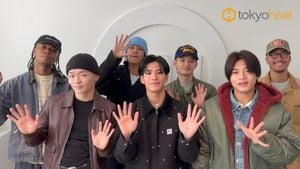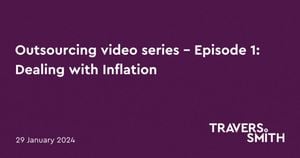The political atmosphere surrounding South Korean President Yoon Suk-yeol has become increasingly charged following allegations of coercive tactics employed by opposition lawmakers toward former Special Forces Commander Kwak Jong-geun. This development, touched upon during recent National Assembly sessions, has sparked significant debate about the integrity of political processes amid national security concerns.
On February 12, during the National Assembly’s government questioning session, Seong Il-jong, chairman of the National Defense Committee representing the ruling People Power Party, claimed to have evidence of attempted coercion involving Kwak by members of the Democratic Party of Korea (DPK). He revealed this based on accounts provided by Kim Hyun-tae, the commander of the 707 Special Task Group, who stated, "Democratic lawmakers completely used me". This phrase encapsulates the mounting tension as the two primary political factions clash over narratives surrounding the government’s emergency responses and military protocols during times of potential unrest.
Kwak, who previously testified about being instructed by President Yoon to facilitate the detainment of lawmakers during emergency measures, has emerged as a pivotal figure. Described as providing unfavorable testimonies against the government, his communications with opposition party members have raised eyebrows. Seong claimed Kwak was approached by DPK member Kim Byeong-joo on December 5, during which Kim allegedly orchestrated his appearance on YouTube for what was framed as a mere visit. The conversation reportedly included directives to respond spontaneously to questions, premeditated plans to guide Kwak's statements, and specific suggestions on how to frame these discussions as protective inquiries.
On the day following his first encounter with Kim, Kwak voiced concerns about the military’s operations during the state of emergency on Kim Byeong-joo's YouTube channel, playing the role of whistleblower—a position the DPK has aimed to promote. This led to speculation about the integrity of the testimonies being presented as coincidental versus strategically solicited. Seong Il-jong expressed his belief, saying, "What we have here is decisive evidence of Democratic Party collusion to undermine the government through orchestrated testimonies," calling for fair investigative measures to clarify the allegations.
Seong detailed subsequent interactions, including one on December 10, where he claimed DPK lawmakers, particularly Park Beom-kye and Bae Seung-chan, spent over ninety minutes pressuring Kwak to align with their narrative. Reports suggest they practiced responses with him, directing his statements and rehearsing answers to ingratiate Kwak’s candidacy for public sympathy. This theatrical approach to political testimony has been viewed unfavorably by the ruling party, who argue it belies genuine democratic engagement.
Despite these assertions, opposition lawmakers from the DPK refuted the claims, asserting they were fulfilling their democratic duties of oversight and accountability. DPK member Lee Chun-seok emphatically stated, "The People Power Party categorically denies any wrongdoing, yet they defend the actions of President Yoon, portraying him as above scrutiny during these turbulent times," because the assertion of their actions being indictments of rebellion suggests political maneuvering to maintain power at all costs.
Further complicity was added with reports of legal assistance extended to Kwak by opposition members, purportedly requiring him to feel secure amid the unprecedented pressures of his former position. This aspect has reignited discussions about the blurred lines between political protection, coercion, and civic duty. Lawmakers have expressed concerns about whether ethical boundaries have been crossed concerning public safety and legislative integrity.
Kim Hyun-tae’s testimony, purportedly recorded formally for military prosecutors, noted how Kwak was allegedly manipulated under the pretext of receiving legal counsel. "They promised to protect me from any repercussions relating to the disclosure of state secrets, but I felt cornered,"] Kim reported, raising alarm about the lengths to which political factions might go to secure favorable orchestrated testimonials from military figures.
Inside the National Defense Committee, party lines remain sharply divided. The ruling party continues to call for evidence-based inquiries, primarily devoted to affirming the credibility of testimony extracted under pressure. Conversely, opposition members demand investigations of their own, widening the inquiry to encompass Yoon’s administration. They argue, by focusing exclusively on Kwak, valuable insight on national command decisions during emergencies risks being overlooked.
Seong Il-jong encapsulated the sentiments by stating, "The core issue is whether we are allowing the military command integrity under political duress or empowering democracy through accountability." The political narrative continues to evolve with each session of the National Assembly signaling more turbulence. The ramifications of these testimonies could redefine the boundaries of military and political interplay.
Across South Korea, citizens are increasingly vigilant, with public opinion acting as the third element to this tense political discourse. Analysts warn it’s not merely about immediate claims of misconduct but rather the broader implication for civil-military relations and the safeguarding of democratic principles. The future remains uncertain as various factions jockey for legitimacy amid cries for transparency and proactive governance.



